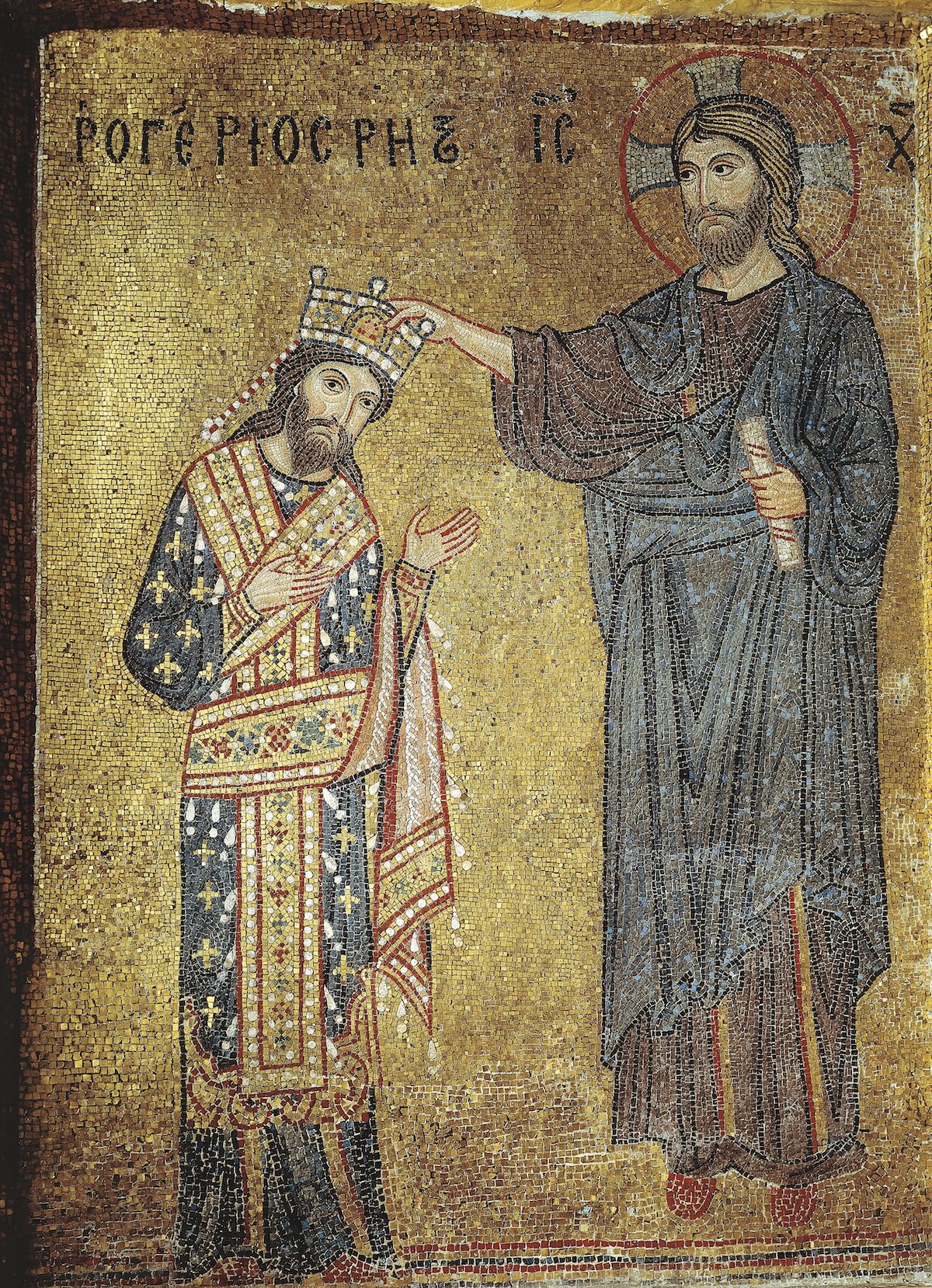The Kingdom of Sicily is Born
On 27 September 1130 a Norman usurper gained a crown from a desperate pope and the Kingdom of Sicily was born.

Roger II, it has been said, conceived of his Sicilian kingdom as a ‘work of art’. If so, contemporary reviews were mixed at best. To Bernard of Clairvaux he was ‘the Sicilian usurper’; to the Byzantine Theodore Prodromos he was the ‘tyrant of a small toparchy of apes’; to a Saxon chronicler he was ‘a semi-pagan’.
Why the hostility? The title of king was granted to Roger by the pope, if not under duress then certainly under pressure. The papacy was in schism. One claimant, Innocent II, had the support of the Holy Roman Empire. The other, Anacletus II, had Rome itself but little else. A crown must have seemed a small price for the latter to pay to a man with an army and most of southern Italy at his feet. The papal declaration of 27 September 1130, following a meeting between the two at Benevento, more or less acknowledged the realpolitik. ‘Divine providence’, it noted, had ‘granted [Roger] greater wisdom and power than the rest of the Italian princes.’
Often it seemed like the whole of Christendom opposed him. Innocent II, who triumphed in the schism, did so whenever he dared. So did the Holy Roman and the Byzantine empires. Venice and Genoa declared war.
In some ways they were right: the kingdom was, by contemporary standards, an absurdity. Roger’s father and uncle were Norman adventurers who had seized large parts of southern Italy – including Apulia and Calabria, the last Byzantine territories in the west, and the Islamic emirate of Sicily – towards the end of the previous century. But Roger didn’t always lead his men into battle himself.
To the Arab geographer Al’ Idrisi, Palermo became ‘the greatest and finest metropolis in the world’; trade and plunder alike poured in. Roger might have been a Latin ruler, but he spoke both Greek and Arabic, and preferred the former where possible. His army was mostly Muslim. Greeks and Muslims dominated his court, as they did in Sicily as a whole. Crusading fever was breaking across Europe, but Sicily was a multi-faith, multi-ethnic redoubt – less a work of art, perhaps, and more some kind of magic.